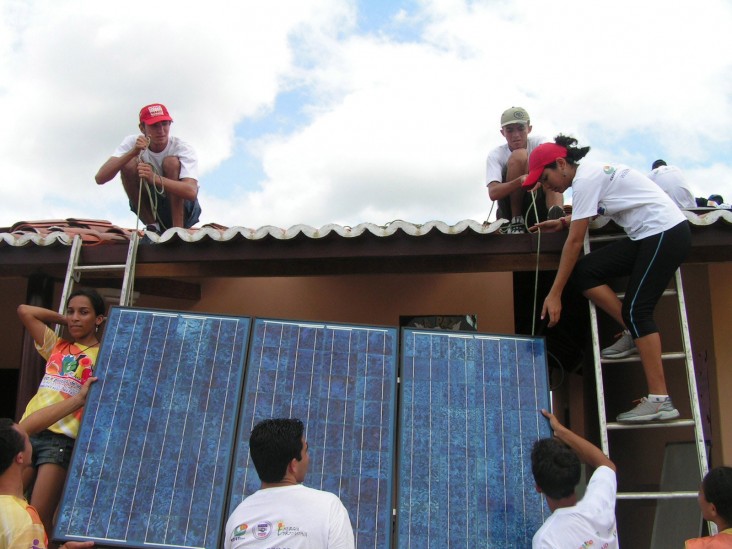
Among Brazil’s poor, youth unemployment can be as high as 66 percent. Young people looking for work lack the skills, experience, and education that make them desirable in a tight labor market. Another, very different, problem among the poor is access to electricity. About 12 to 15 million poor live without electricity — they are not connected to the nation’s power grid.
USAID is tackling these two problems with a joint solution: training youth how to install renewable energy systems that do not rely on access to the nation’s power grid.
The program, run through the Institute for Sustainable Development and Renewable Energy in the city of Fortaleza, trains students from the poorest neighborhoods in building renewable energy capacity. The program recruits 16- to 24-year-old men and women to attend an eight-month training course. In addition to technical courses, the program teaches students networking and presentation skills, as well as project development and marketing. Students also receive field training on renewable energy at private firms. As part of their training, one group of students set up a solar-powered cookie factory.
So far, the program has succeeded very well in one of its goals: to help youth find employment. Over 60 percent of graduates now have jobs or are attending university full-time. Given the demographics, this is a remarkable achievement. Graduates have found jobs in a variety of fields, from construction to retail. Two students set up an organization to help adolescents develop job-search networks. Two others have set up a recycling cooperative that also produces craft items.
Finding jobs in renewable energy has been harder because the field is still small. But it is growing. A wind turbine manufacturer that will need 300 new technicians in the coming years has offered internships to 50% of program graduates. A civil construction group has also offered internships to graduates.
As renewable energy demand grows, so will the number of graduates helping to solve the electricity deficit. Until then, the program gives them skills that will last well beyond their first job.







Comment
Make a general inquiry or suggest an improvement.